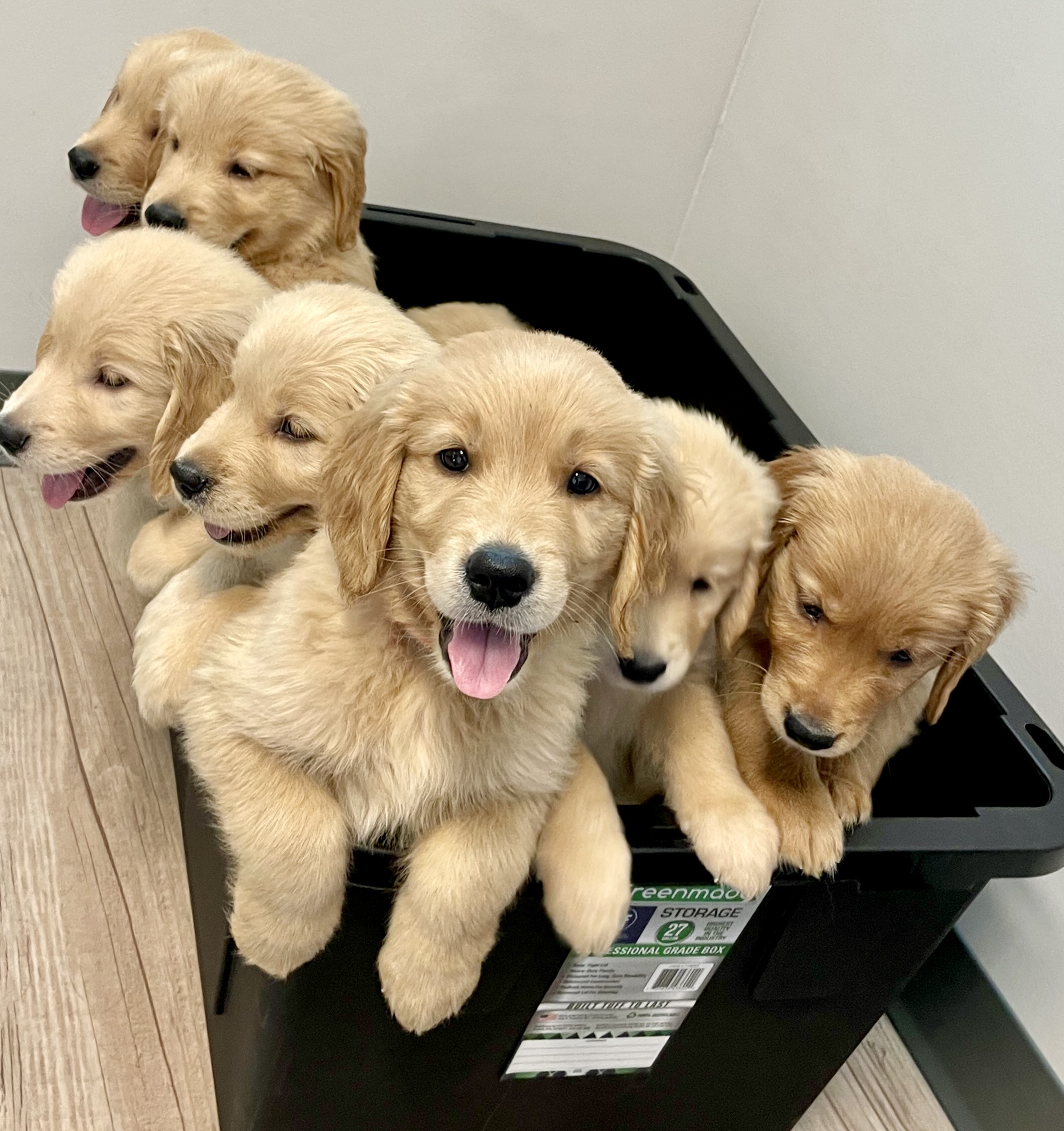Preventative Pet Care
Vet Next Door is proud to offer pet preventative services! Read more below.
Vet Next Door Preventative Pet Care
At Vet Next Door, we believe that the best way to promote overall health is through preventative care.

Preventative Care
One of the most important aspects of caring for your pet’s health is vaccinating them against potential diseases. Our veterinarians will work closely with you to determine the best vaccination protocol for your pet based on their lifestyle and unique risks.
Parasite prevention is another important aspect of wellness care. Heartworms, fleas, ticks, and intestinal parasites are all found in Florida. Having the right prevention plan in place for your pet’s lifestyle is critical to prevent the spread of disease.
Puppy & Kitten Care
What to expect?
- Develop a vaccination plan
- We follow guidelines set by the American Animal Hospital Association (AAHA) regarding vaccination protocols for puppies and kittens. Typically, your pet will be due for vaccinations every 3-4 weeks between the ages of 8 weeks and 16 weeks old.
- Track growth and development with regular physical examinations at each booster visit.
- Fecal parasite testing and deworming
- Intestinal worms and other parasites such as Coccidia and Giardia are common amongst puppies and kittens. These parasites are typically acquired from the mothers or a contaminated environment.
- FeLV/FIV testing (kittens)
- Feline immunodeficiency virus (FIV) and feline leukemia virus (FeLV) can cause many types of illness as well as death in infected cats. These viruses do not infect humans or other animals but are very contagious between cats. If your cat is new to the family or you adopt another cat, testing is advised before introducing the new cat to other cats in the household.
- FIV is more commonly found in male cats that are not neutered and in cats that fight with other cats. There are no vaccines available in the United States that can protect cats from FIV infection. Prevention is accomplished by regular testing and separating positive cats.
- FeLV is more commonly spread among cats that live together. The virus can also be spread from mother to kittens and among cats that fight. It is mainly spread through saliva when cats groom each other, and when food and water bowls are shared. Several vaccines to protect cats from FeLV infection are available. Vaccination is recommended for all kittens, again one year later, and regularly for cats that have access outdoors. Adult indoor-only cats living alone or with uninfected cats may not need to be vaccinated after the first 2 years. Your veterinarian will help assess your cat’s vaccination needs.
- A puppy or kitten welcome bag with goodies to help get your new family member off to the right start!
We’re ready to help get your furry family member off to the best start possible. We look forward to meeting them!
Vet Next Door Health Certificates
At Vet Next Door, we offer health certificates for a variety of needs.

Health Certificates (OCVI) for Resale in Florida
If you’re planning to sell puppies or kittens in Florida, you’ll need to obtain a health certificate (OCVI) from a licensed veterinarian. Please call our office at 941-999-1195 to schedule an exam and let us know that you need a health certificate for the “sale” of an animal within the state. If you’re selling a pet to someone outside of Florida, you’ll need a health certificate (OCVI) for travel (see below tab).
Each individual animal within a litter must have their own health certificate that will go with them to the purchaser. We will retain one copy of the form for one year, the seller will get a copy, and the original should be given to the purchaser at the time of sale. Please be advised that health certificates expire after 30 days from the date they are issued.
To complete the health certificate (OCVI), your pet must meet certain requirements in accordance with Florida law:
- All pets must be at least 8 weeks old at the time of sale.
- Each pet must show no signs of parasites including intestinal worms and ear mites. Your pet must have a negative fecal test before the health certificate can be completed. If possible, please bring in a stool sample from each pet prior to your exam to have checked. Even if the result is negative, the pet must be dewormed at the time of the exam.
- Required vaccinations for dogs include DAPP, Leptospirosis*, and Bordetella. A Rabies vaccine is required if the puppy is over 3 months old. The DAPP vaccine includes canine distemper, parvovirus, parainfluenza, and adenovirus-2 (infectious hepatitis). *Exceptions can be made to administration of the leptospirosis vaccine if your veterinarian determines it is not in the best medical interest of the pet.
- Required vaccinations for cats include FVRCP and Rabies (if older than 3 months). The FVRCP vaccine includes: feline distemper (panleukopenia), feline viral rhinotracheitis, and calicivirus.
- Any dog for sale over 6 months old must have a heartworm test.
- Any cat for sale must be tested for feline leukemia virus (FeLV).
- The above services are required to be performed by an accredited veterinarian at our hospital, regardless if they were performed elsewhere or by the breeder. These services must be completed no more than 21 days prior to sale if the pet is less than 4 months old, and no more than 1 year prior to sale if they are over 4 months old.
Health Certificates (OCVI) for Travel
Please call our office at 941-999-1195 to schedule an exam and alert the staff that this is to obtain a health certificate (OCVI) for travel. Most states in the US will only need a basic interstate form, however, Hawaii has much more significant restrictions. Our hospital offers international health certificates, but this service may be limited depending on the destination country. Please be sure to let the staff know specifically where you are traveling to ahead of your appointment.
The process for traveling with a pet internationally can be very long and confusing. We recommend that you contact the USDA/APHIS Veterinary Services Area office in Gainesville, at 352-313-3060 or the National Import Export Services (NIES) Call Center: 301-851-3300 (Press Option 2 – Live Animals). The NIES call center provides centralized support for all your animal health import and export inquiries. Note: it is also very important that you contact the airlines or state/ country that you are traveling to for any other specific forms or requirements that they have in order to allow your pet to travel. Please do this prior to scheduling your appointment so that our staff can ensure that we are able to meet the requirements for your travel destination.
If your pet has been vaccinated at another veterinary hospital or rabies clinic, please bring proof of this with you. If no proof of vaccination exists, it is required to update the vaccines at the time of exam before the health certificate can be completed. You will need to be sure that all required vaccinations, diagnostics, and other requirements for travel are done within the appropriate time line for your destination. Since these requirements vary significantly for each country, our office cannot be responsible to provide you all the details you will need for travel, but we will help you in any way that we can to direct you to the information you need.
For more information from the USDA and a list of requirements by country please visit: http://www.aphis.usda.gov/wps/portal/banner
